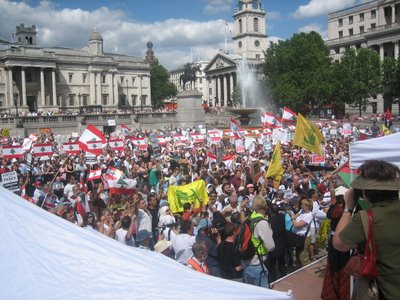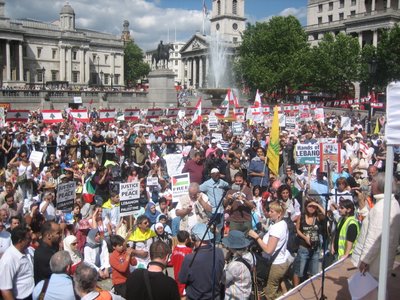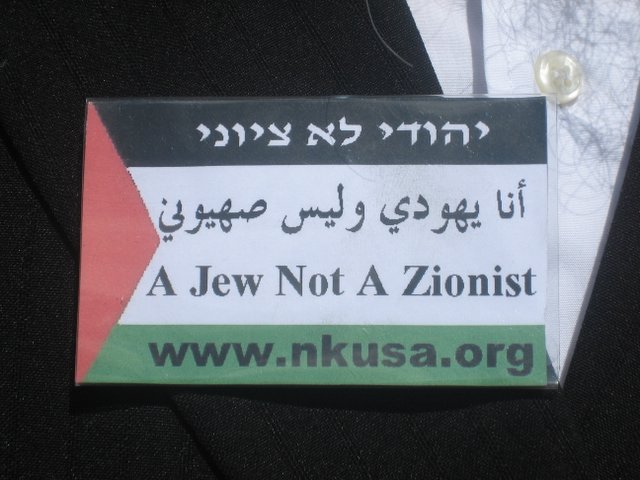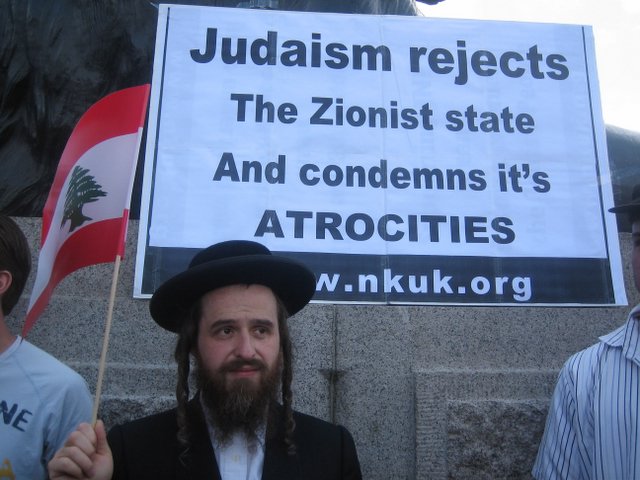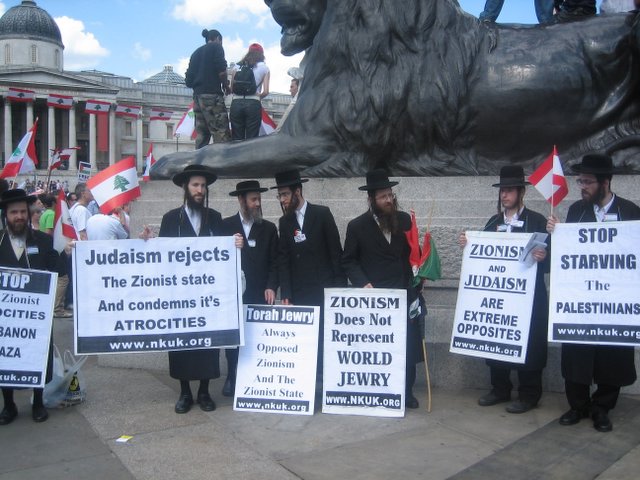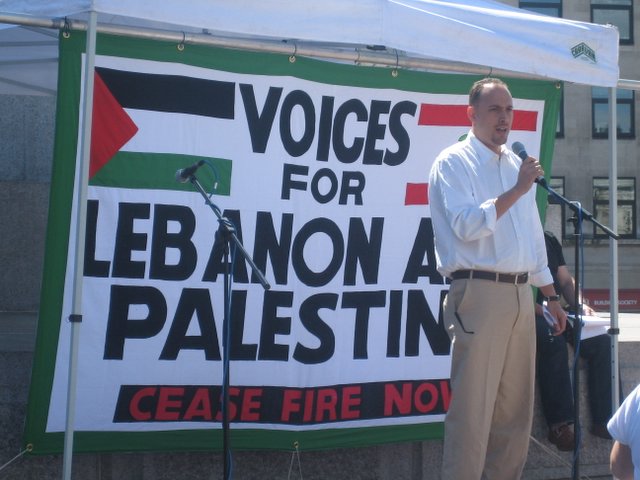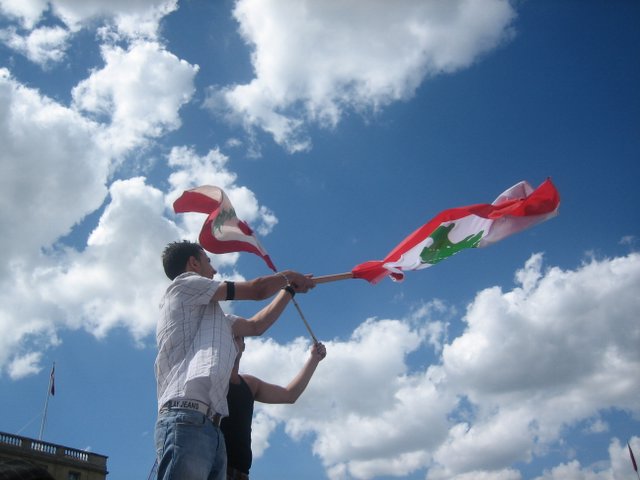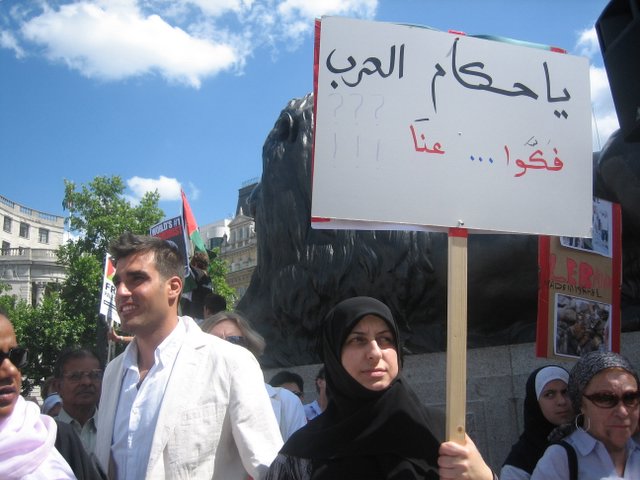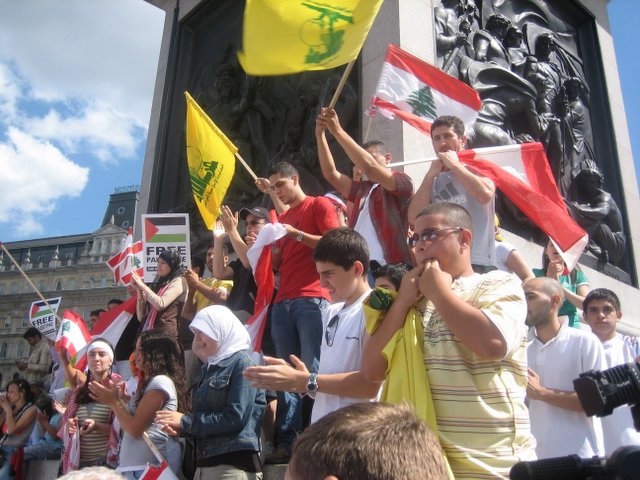
Activism is starting to grow day after day in London and Egyptian activists are starting to exchange ideas, create common grounds, and try to make use of their presence in London. This time it was a discussion among some activists who wanted to attempt to question what they think Egypt's future over the coming period would look like and what chances does the establishment of real democracy had in Egypt. At many points in time the discussion hit the question "what can we do to share our part of the responsibility towards the calls for democracy in Egypt?", this was driven by the sense of responsibility and thirst to participate that was filling the air... there were many attempts to answer that question, many of them have been recorded below.

Dr Yahia El Kazzaz (member of the Kefaya Coordination Committee) kicked off the discussion by asserting that Egyptians activists abroad should focus their efforts in connecting with the activists inside Egypt and understanding their situation before communicating their message to the civil society in Europe to get them support in their quest for democracy and justice. Kazzaz stressed that activism in London will break the barrier of "fear" that was created over time among the Egyptians abroad from taking part in the struggle for their national causes and it will challenge the generalised lack of trust of any effort that came from outside the borders. He stressed that activists abroad should play a very vital role in exposing the brutality of the security forces and the government against reformers and it soliciting support to the cause from the civil society.
Dr Kazzaz then talked about the Kefaya experience in Egypt and how it followed the same scenario of challenging the perceived fears that were created by the government when it started organising demos in Cairo streets without getting the ministry of interior's permission for the belief that unlike the government propaganda protesting is an integral part of our rights that does not require a permission to be exercised. He pointed out however that the movement is only 2 years old so it is in the very beginning and people's expectations should take into consideration how young the movement is.

Dr Mostafa Abdel Al stressed how the importance of not perceiving the inheritance of presidency in Egypt as 'fate' or something that cannot be opposed and rejected. He said that if Gamal manages in inherting power then this would take us back to the royal times which we revolted against. On a more practical level, the Egyptian cause should be explained and our role is to communicate with the civil society in the UK to convy this cause. He stressed that youth will be the bridge between the older generation living in the UK and the organisations that constitue that civil society as they would be more active and more capable of communicating with them.

Inas then stressed on the importance of communicating with the Egyptians abroad especially in the UK and trying to get them involved, and if not possible then at least make sure they know and understand what is happening in Egypt; this way we could be really adding value to the cause.
An important question was raised with regards to the US Aid and how it became so important to the government. Dr Kazzaz noted that stopping the aid at any point in time would be a disaster to the government as the whole regime would be completely exposed financially and economically. The finances to the securtiy appartus would be strongly affected as well.
Nariman pointed out that the efforts, meetings, and demos that already started in London should carry on and that we should focus more on bringing about a change without going into the details of what the poiltical and social systems to follow would look like as this would cause lots of deviations and different opinions depending on the ideologies and beliefs. She believes this could be discussed through a national dialogue under the umbrella of a democratic system.

Guy Tailor who was attending as an observer from Globalise Resistance which is an English NGO campaigning against globalisation said that it would be very important for any campaigning effort in the UK to network with the different NGOs, Trade Unions, and student networks in order to get public attention to the cause. He gave an example with the Marxism Conference that would be taking place from the 6th to the 10th of July in London, there will be 2 workshops during the conference that will be tackling Egypt and democracy in the Middle East. He said that those workshops play a very important role in raising awareness about the situation in the Arab World.

Mr. Kamal Bayoumi told us that the spirit in the air resembled what they used to feel as young men before the 1952 revolution, spirit and enthusiasim are not the only resemblence he says, he saw and remembers the same kinds of slavery and torture that prevailed during the time of the King. He said that the ugly face that used to be there before the revolution is back again and is even worse.
Omar said he'd play the devil's advocate for the sake of uncovering what we could have missed. He pointed that there is still no mass movement or mass demand for change in Egypt, all the calls for change are coming from a very limited and small class of intellectuals and activists who do not necessairly represent the nation. Omar said that none of those movements could mobilise more than few hundreds to a demonstration for example. The only group that can actually mobilise thousands is the Muslim Brotherhood but he is not sure if it represents the majority of the people. Dr Kazzaz however noted that Kefaya managed in 'initiating' the recent struggle and this is a very important value added that is not related to the numbers of those who support you but to what you have actually achieved and he believes that the very first anti regime demo that Kefaya organised was a very new aggressive step.
Mr Kamal Bayoumi wanted to end the discussion with practical suggestions, he said that any campaigning effort in the UK should depend on targeting three main groups if it wants to achieve something. First is the Egyptian youth studying and living in the UK, second are the Egyptian Senior citizens who are already settled in the UK, and thirdly the British Civil Society.
In order to translate that into actual practical steps, the attendees agreed that the proper starting points would be:
form discussion groups that would always meet to discuss the current developments and give a chance for more people to listen and learn about what's happening.
inviting more people to attend the discussions
compiling names and contacts of the Egyptian activists in the UK and putting them in contact together as well as coordinating their efforts
writing to newspapers about the situation in Egypt as this is a very effective method in the British society
organisin exhibitions, publiuc meetings, demos about what is happening in Egypt to attract attention to the cause.
